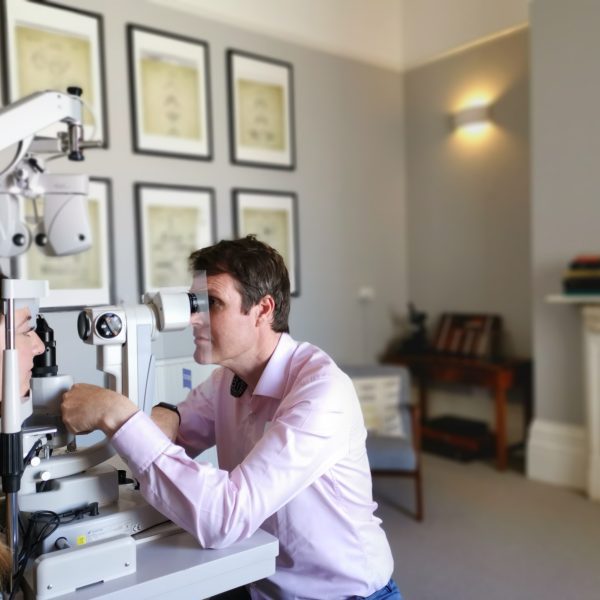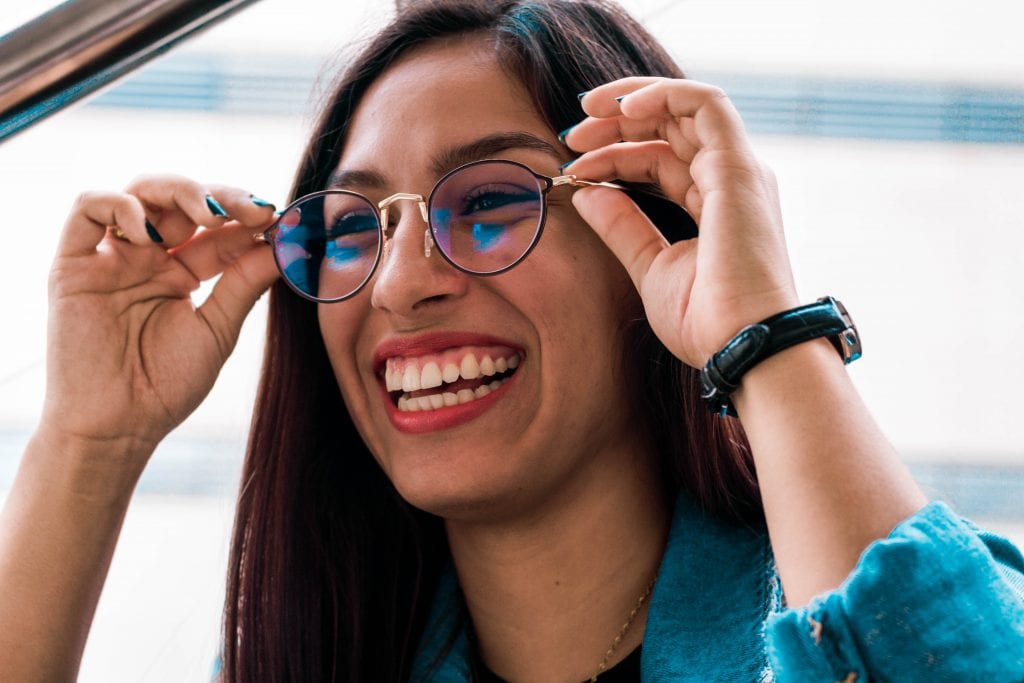No two exams are the same, and each is tailored to your needs, so you may find different tests are carried out at each visit, and two members of the same family may need quite different visits. But some common features exist in all exams. We will ask a series of questions about why you have come to see us, about symptoms and about your medical history – if you take any medications, always try to bring a list of what you are taking with you (or bring the packets with you).

Eye Examination Services | Cheltenham
WHAT HAPPENS IN AN EYE EXAM?
We will like to know of your work conditions, whether you use a computer and at what distance you work. Your hobbies and interests are also important, and whether you drive. If there has ever been any eye disease in the family, try to find out more details – some conditions are hereditary and this will affect what we need to do.
Your ability to see detail is traditionally measured with the letter chart to give a measure of ‘visual acuity’. Traditionally this is recorded as a fraction, for example ‘6/6’. This means you can see at 6 metres what a normal person would be expected to see at 6 metres. 6/12 means you can see at 6 metres what a normal person would be expected to see at 12 metres – in other words your vision would be less clear. In the USA they use feet and inches, so the equivalent of 6/6 is 20/20!
We use a series of tests to measure how efficiently you use your two eyes together, and whether there are any weaknesses in your binocular vision – problems here can affect coordination, sport and also affect reading efficiency.
The spectacle prescription is the specification of the lenses that give you the best visual results – helping you see as well as possible, and as effortlessly as possible. We use a series of tests to arrive at this ‘recipe’ both with and without your active cooperation. It is possible to achieve an accurate prescription without any patient ‘input’ – which is how we are able to work with small children and those with communication difficulties. You will often be asked to make choices between two lenses “Which is better 1 or 2?’” What we are doing here is progressively fine – tuning the lenses and it may be difficult for you to make a choice. Don’t worry though – that means we are there!
We at Keith Holland opticians will check ocular pressure with a Perkins tonometer which is considered the ‘gold standard’ method of checking pressures, making the puff of air test a thing of the past.
W H A T . H A P P E N S . A F T E R . T H E . E X A M
Once we have completed the necessary tests we will be in a position to give you our advice – not only on your need for glasses, but on ways to improve how you use your eyes. This may include advice on diet, lifestyle and possibly even exercises to help develop key skills. As a practice we have an international reputation for our work with vision therapy and we are able to bring this experience into even a routine eye examination. You should receive a written statement of the results of the eye exam – keep this safe as it may be useful if you lose your glasses whilst abroad. We are often asked to complete medical forms for the forces, for employers and for DVLA, and we are always happy to do so – just ask (there may be charges involved).

